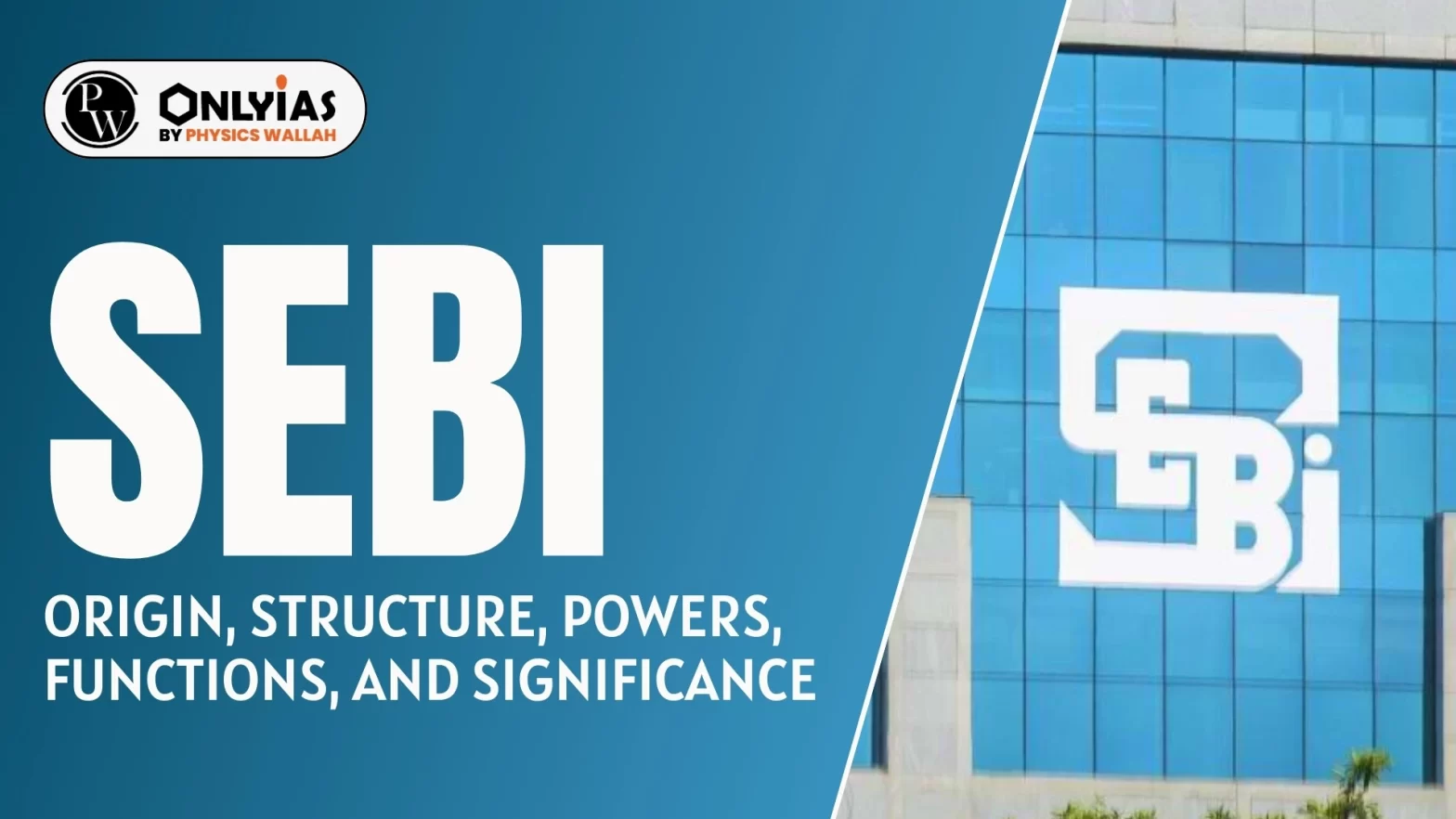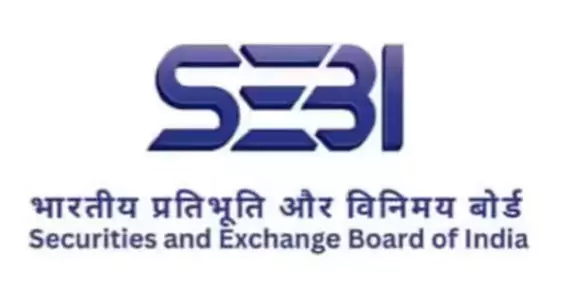Securities and Exchange Board of India (SEBI) is a regulatory body looking after securities and commodities market in India. Check here to know all about SEBI, including its origin, structure, powers, functions, and significance.

SEBI stands for Securities and Exchange Board of India. It is a statutory body functioning under the Ministry of Finance, Government of India. It was established on April 12, 1992, following the SEBI Act, 1992. It is an important topic for the UPSC Exam, included under General Studies Paper III.
Securities and Exchange Board of India (SEBI) is an autonomous body working under the supervision of the Ministry of Finance. The basic function of SEBI is to protect the interests of investors and to promote and regulate the securities market.

The SEBI Board is chaired by a Chairman and several other full-time and part-time members. It can also appoint various committees as and when required to look into the prevailing issues of the time.
The full form of SEBI stands for Securities and Exchange Board of India. It is an autonomous body conferred with statutory powers to regulate the securities market in India.
SEBI was first established in the year 1988 as a non-statutory body. But later on, it was conferred with the statutory powers in 1992. The origin of SEBI can be traced as follows:
The SEBI Act, 1992, established the Securities and Exchange Board of India as the regulatory body for the securities market. The Act was enacted to protect the interests of the investors, promote and regulate the development of the securities market.
SEBI possesses the authority to make laws, regulations, conduct investigations, and impose penalties to ensure fair practices and maintain the integrity of the market.
SEBI is an autonomous organization working under the administration of the Ministry of Finance. It is chaired and managed by the following members:
Tuhin Kanta Pandey is the current chairman of SEBI, who took charge on March 1, 2025. He replaced Madabhi Puri Buch, whose term ended on February 28, 2025.
SEBI, as an autonomous body possessing statutory powers, has several powers over the securities market in India. Some of them include:
Apart from powers, SEBI has several important functions in the securities and exchange market of India.
The Securities and Exchange Board of India (SEBI) has the following objectives as an autonomous body:
Being an autonomous body with statutory powers, SEBI holds a position of great significance in the securities market of India. Some of them include:
Although the Securities and Exchange Board of India (SEBI) holds a lot of significance in the securities exchange market, it has also been criticized on a lot of grounds. Some of them include:
Securities Appellate Tribunal or SAT is a statutory body that was established under the SEBI Act, 1992.
Ready to boost your UPSC 2025 preparation? Join PW’s UPSC online courses today!
SEBI stands for Securities and Exchange Board of India. It is a statutory body working under the Ministry of Finance.
SEBI was constituted as a non-statutory body in April 1988 by a resolution of the Government of India.
Tuhin Kanta Pandey is the current chairman of SEBI, who took charge on March 1, 2025.
The primary function of SEBI is to protect the interests of investors and to promote and regulate the securities market.
The SEBI includes the following members: Chairman, Two Members of the Ministry of Finance, One Member of the RBI, and five other members nominated by the GoI.
<div class="new-fform">
</div>